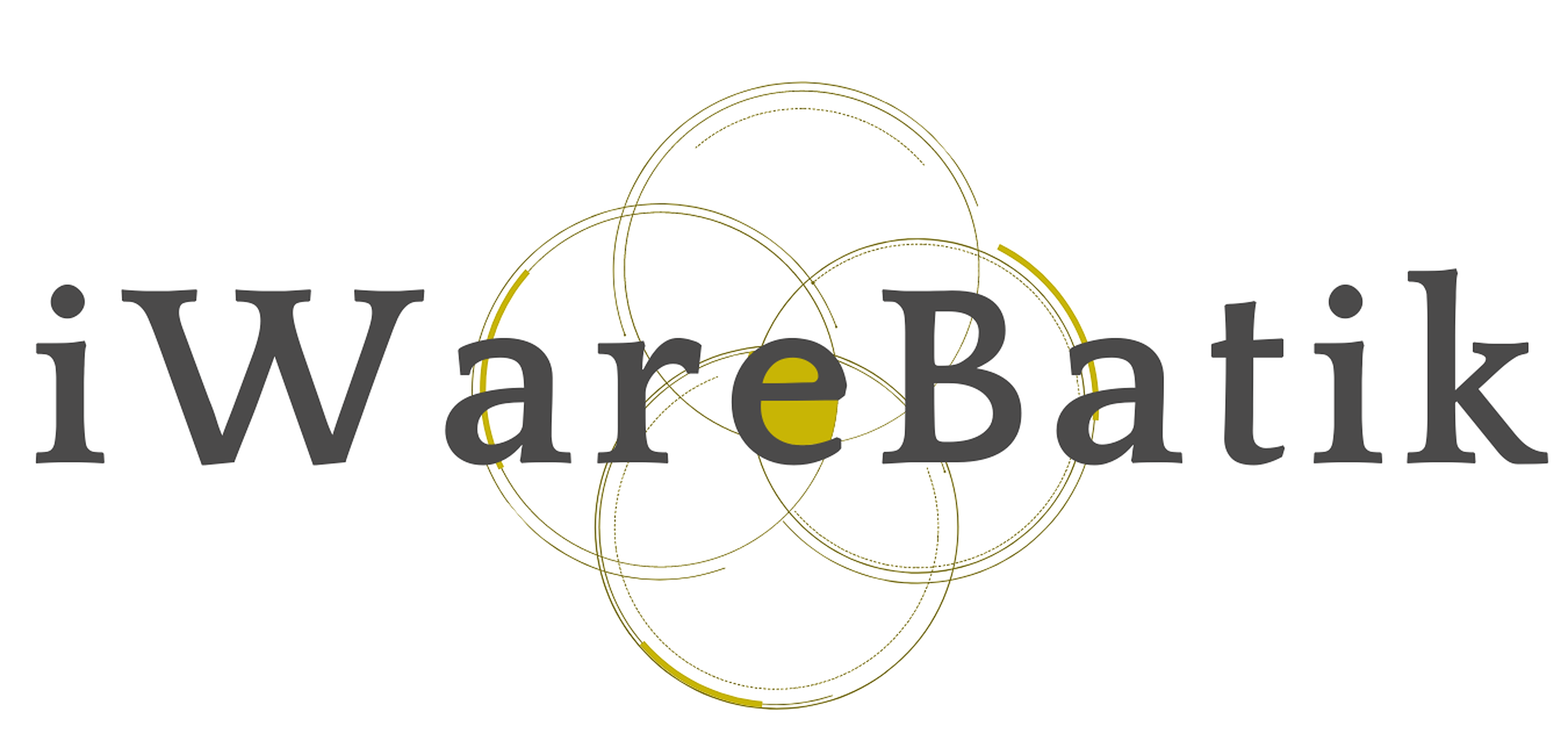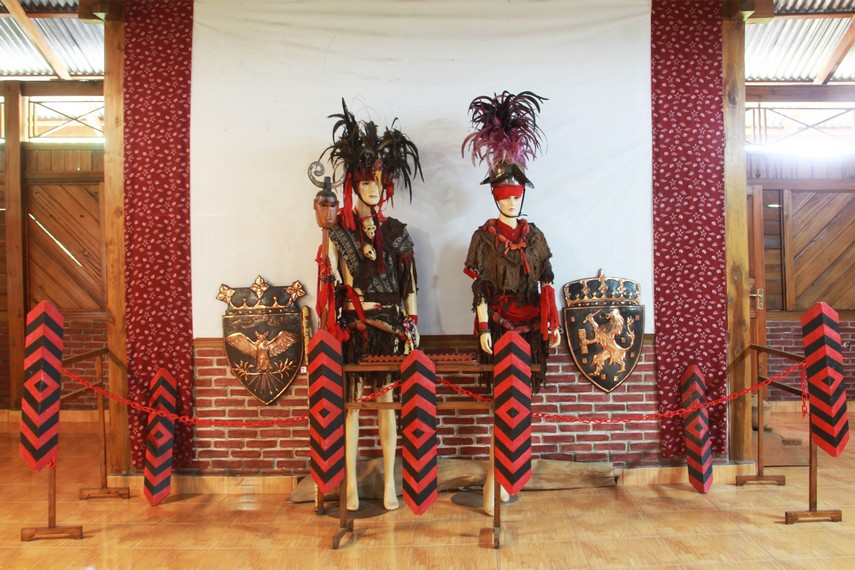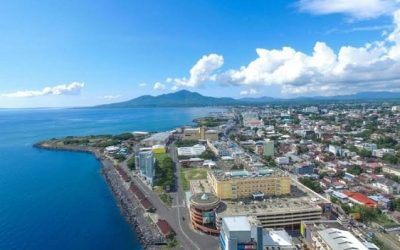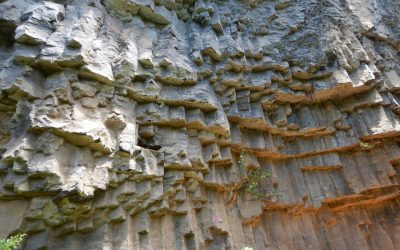Home / Batik Regions – Central Indonesia – Sulawesi Island – North Sulawesi / Pinawetengan Museum
Cultural Destination
Pinawetengan Museum
Minahasa Traditional Costume (Photo: @Indonesia Kaya)
Pinawetengan Museum
Pinawetengan Museum displays various collections, ranging from pre-historic relics, ancient Minahasa tribal objects, to Dutch colonial relics. Located 4 kilometers from the museum, the prehistoric site of Watu Pinawetengan has existed since 1000 BC. It is considered a sacred site and the birthplace of Minahasa ethnic.
Cultural Tourism Destination
Pinawetengan Museum
Tourist Attractions in North Sulawesi
Manado City
The city of Manado is famous as a unique city as it is located in a bay near
Batu Dinding Kilo Tiga Cliff
If adrenaline is one of the main components of your trip, you should definitely visit
World’s Coral Triangle – Bunaken Marine Park
Located in the World’s coral triangle, Bunaken National Park is
North Sulawesi
Batik Motifs
Manguni Minahasa
Manguni is identified as the symbol of the Minahasa people. Manguni is known as a
Pinawetengan
The Pinawetengan Batik pattern was taken from a prehistoric inscription in
Discover
Indonesian
Batik
Motifs
Kuda Kupang
Horses symbolize wealth. It contains noble values of virtuous characters that bring
Ake Patra
Ake is related to the divinity and the composition of the universe. It is a symbol of
Srimanganti
The name of the Srimanganti motif is derived from Palace’s hallway that connects to
Salakanagara
Salakanagara batik motif illustrates the first kingdom in the Betawi land
Sero Tangga
The Sero Tangga illustrates an endearing feeling and sacrifices of a person to fulfil
Pinawetengan
The Pinawetengan Batik pattern was taken from a prehistoric inscription in
Sekomandi
Its philosophical meaning is the eternal union which refers to a saying “until death do us part”
Karawo Pinang
Pinang refers to the Palm areca tree. This motif is considered as the original
Kerawang Tegak Aceh
The Vertical Upright (Kerawang Tegak) Motif symbolizes a person who has a strong
Gurdo Solo
Gurdo or garuda bird is the mount of the Indian god Vishnu. As the Sun Bird,
Tenun Bima
The motifs are adopted from Bima woven textile. This pattern has received a great
Besurek Rafflesia
The term “Basurek” refers to a textile that contains letters or inscriptions
Dayak Taghol
Dayak Taghol has a distinctive style of four curved lines and small dots. This motif represents
Pati-Pati Pinehiku
It symbolizes the hierarchy in society and the social status of the Mekongga
Kaganga Tanah Rejang
If Batik Besurek combines Arabic calligraphy motifs, then the Kaganga batik takes
Merak Ngeram
The hatching peacock motif has a very deep meaning which refers to the sacrifice and
Tangerang Herang
Tangerang Herang motif is a symbol of Tangerang city. The Tangerang Herang batik motif consists of
Bekantan Pakis
This motif represents Pakis Haji (Polystichum setiferum), an endemic plant in
Daun Lada Hitam
The black pepper motif represents the main commodity of Bangka Belitung
Gonggong Siput
Gonggong (Strombus Turturella) is one type of sea snail found around
Parang Rusak
Another meaning behind this motif is an unconquerable spirit, symbolized by
Lipaq Sabe
Lipaq Saqbe contains a simple geometric classical motif with various flower decorations. This textile is
Durian Pecah
Broken Durian motifs depict the foundation of faith. The second half signifies the mastery of
Gentala Arasy
Built as high as 80 meters, the tower also highlights the historical side of
Gajah Way Kambas
The motif illustrates the Lampung’s natural reserve, the Way Kambas. it also symbolizes
Gonggong Beruntun
This motif illustrates that a person should maintain a positive attitude and
Gigi Haruan Lidi
The Gigi Haruan Lidi motif is taken from the name of the cork fish and is a symbol of
Pala Salawaku
This motif illustrates the unique weapons of the Maluku region, namely
Biji Kopi
The coffee seeds motif illustrates the pride of local coffee specialities in
Pucuk Rebung Riau
Pucuk Rebung symbolizes heart determination in achieving goals, good luck, and
Honai
The Honai is inspired by the traditional house of the Papuan community living in
Teguh Bersatu
This batik motif shows the strength of the people of Kupang. It also represents a sense of
Besurek Rembulan
This batik illustrates praise for God who created the wonderful universe
Malinau Cultural Festival
You will witness a unique competition that might not be found other than in
Tikar Natuna
The Tikar Natuna motif is adapted from the traditional making of pandanus mats in
Sido Mulyo
Sidomulyo is one of the classical motifs, which is specifically used for the bride’s costume in
Keluak Daun Pakis
The word “Keluak” is a Minang language which means twisted or tangled. The Motif of
La Galigo
La Galigo is a literary work of the Buginese Epic that has 300 thousand epic lines. It is considered even
Kawung
The Kawung motif was created by Sultan Agung Hanyokrokusumo (1593 – 1645) as a symbolic gift for
Gumin Tambun
Based on Hindu mythology, this motif symbolizes lucks, abundant wealth, and
Lontara
The Lontara script itself is a typical ancient script of Bugis and Makassar communities. History records that
Singayaksa
The Singayaksa motif comes from the name of a place where Sultan Hasanuddin used to
Bintik Tujuh
The Bintik Tujuh (Seven Dots) motif has 7 white spots and green color gradation as
Tifa Totobuang
The batik motifs illustrate Maluku’s traditional music instrument called
Enggang Dayak
Local people beliefs that hornbills are an incarnation of the Commander of the Birds. It has supernatural
Gamolan
This motif illustrates Gamolan, a bamboo musical instrument of Lampung that is
Mahkota Siger
Siger is the crown of a noblewoman in ancient time. It is a symbol of femininity, strength, and
Leuit Sijimat
This motif reflects the daily activities of the Baduy tribe in Banten. The main ornaments of batik motif consist of:
Paqbarre Allo
The word “Barre” means round and “Allo” means the sunlight. This motif is interpreted as
Tubo Kelapa
Coconut tree is a symbol of a good character and strong mentality. It illustrates the more success a person, the more
Bale Lumbu
This motif signifies the welfare of the ancient Sasak society. Bale also symbolizes the
Hiu Taliyasan
Indonesia is also home to the world’s largest fish, the whale shark (Rhincodon typus). Hiu Taliyasan refers to
Kasih Tak Sampai
‘Kasih Tak Sampai’ is an idiom in the Indonesian language which refers to
Manguni Minahasa
Manguni is identified as the symbol of the Minahasa people. Manguni is known as a
Pohon Hayat (Tree of Life)
The Batik motifs in Lampung are dominated by the acculturation of Buddhist and
Gedhog Kembang Waluh
a combination of Javanese cultural motif of the Majapahit kingdom (XII-XIV century) with
Tanah Liek
The word “Tanah Liek” refers to clay in Minang language. It is also known as
Tongkonan
Toraja’s traditional house is called Tongkonan. Tongkonan is a place for
Prada Papua
The word “Prada” in the Javanese-Indonesian dialect means a batik textile that
Lok Baintan Floating Market
As you can imagine, the most authentic thing is that you can buy things and even
Karawo Mahkuta
Mahkuta refers to Gorontalo’s traditional crown. It represents noble characters of
Cengkeh
The clove flower motif is the main commodity of the Tolitoli Regency. This motif represents
Wakatobi
It symbolizes the coastal beauty of the Wakatobi island and the symbol of Patra symbolizes
Tampuk Manggis Sasirangan
The motif illustrates the philosophy of the mangosteen fruit, which is
Raja Ampat
Raja Ampat motif represents the marine life at Raja Ampat archipelago in
Jumputan Bintang
The word Jumputan means the tie-dye technique, while the word “Bintang” refers to
Tabir Tanjung
Tanjung flower is a type of Cherry tree flower, which is commonly found in
Kaharingan
The Kaharingan or ‘tree of life’ based on the Dayak tribes’ belief system. This tree symbolizes
Burung Bidadari
Bidadari birds are endemic birds in Halmahera. This motif represents an
Sekar Jati
Sekar means flower and Jati refers to teak trees that symbolizes a strong mental character that
Parang Seling
Parang Seling or “alternating daggers” is a royal batik motif. It is a feminine variant of
Bomba Mawar
This motif means sacred love for family, kingdom, and God; It also illustrates




